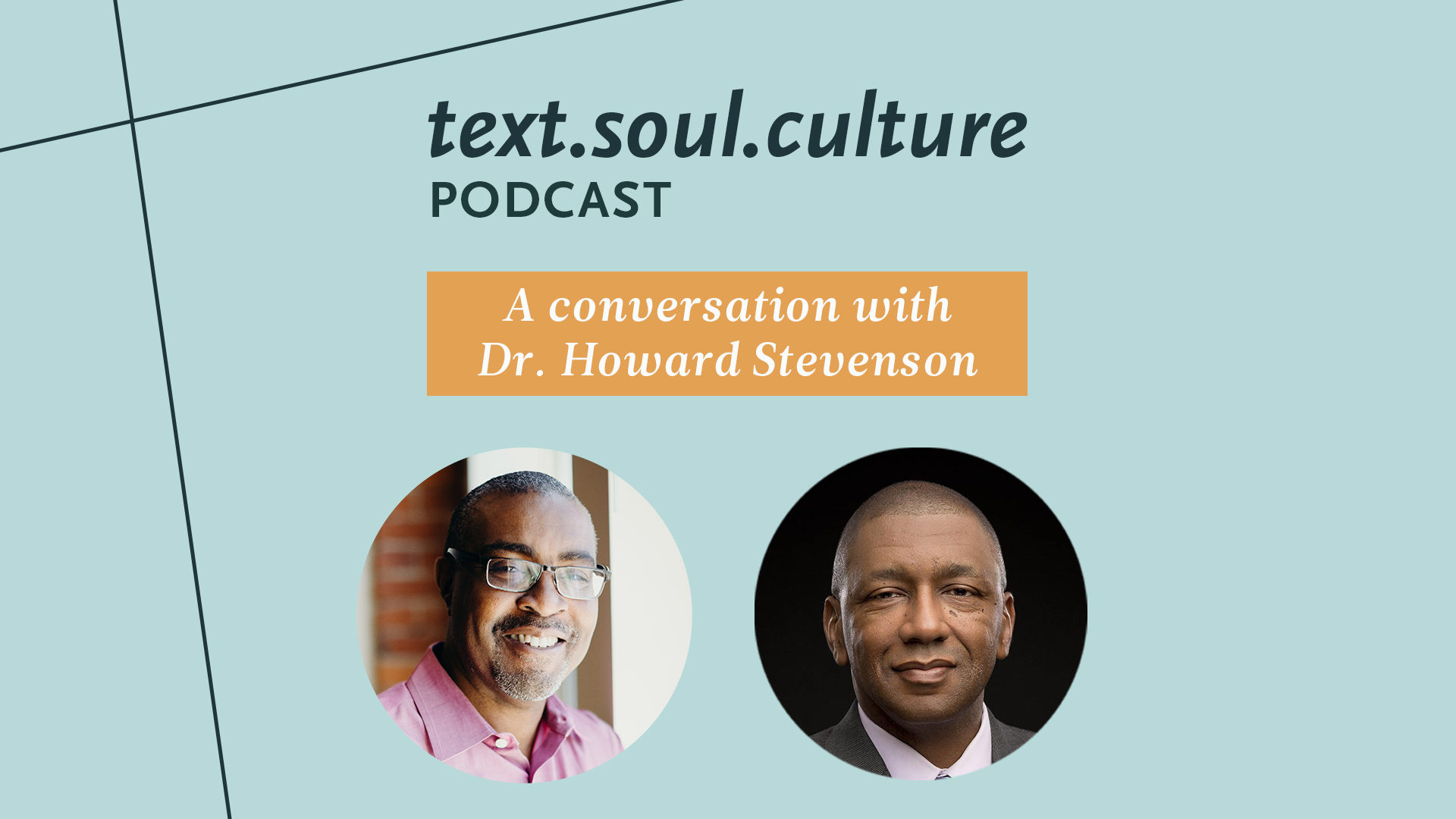Am I living my own story, or living someone else’s? -Dr. Howard Stevenson
Earlier this year, Dr. J. Derek McNeil sat down for a conversation with one of his life-long friends, Dr. Howard Stevenson, about trauma and resilience, especially as these topics relate to African-American men and boys. Dr. Stevenson is a clinical psychologist who performs research and teaches at the University of Pennsylvania and is the Executive Director of The Racial Empowerment Collaborative. Throughout his career, one of the questions that has driven Dr. Stevenson’s research is: Does it matter when we talk to our children, particularly children of color, about race? Understanding not only our individual stories, but the stories of the collective group of people we are a part of, shapes our resilience, capacity to struggle, and ability to thrive.
During their conversation, you’ll hear Dr. McNeil and Dr. Stevenson share findings from their studies on race and resilience, personal stories from their families, and the most surprising thing Dr. Stevenson encountered upon visiting Michael Brown’s high school one year after his death.
“Resilience as: ‘How do you navigate adversity within a particular frame or narrative that people have about you?’” Dr. Howard Stevenson
“In this moment there’s a sense of privilege to have a sense of telling your own story as if it is individual, unconnected to a larger narrative notion.” Dr. J. Derek McNeil
“Our job is to help you fall in love with your own story. When you tell your own story it addresses all the health and well being issues we often struggle with. Who am I? Do I use my voice? Should I shapeshift or not shapeshift? What’s the cost? In your own narrative you get to make better choices.” Dr. Howard Stevenson
“Traumas that come through the stories that are about you, you know you have to live in them or outside of them or create new meaning in them, and I’m realizing that’s a lot of what socialization is about with my family—attempts to buffer the collective narrative by giving an alternative narrative and an alternative meaning.” Dr. J. Derek McNeil
“What does it take to raise a healthy village? You want the leaders in that village to see both and—both you as an individual and as part of the collective—and those two don’t have to be embattled or denied. You hold the individual accountable but also the community accountable to a certain expectation to not swallow the kool-aid of false narratives.” Dr. Howard Stevenson
Resources to Go Deeper
- Read The Color of Money
- Watch Dr. Stevenson’s TEDTalk, “How to Resolve Racially Stressful Situations”
- Learn more about The Racial Empowerment Collective
- Read more about Dr. Wade Nobles


